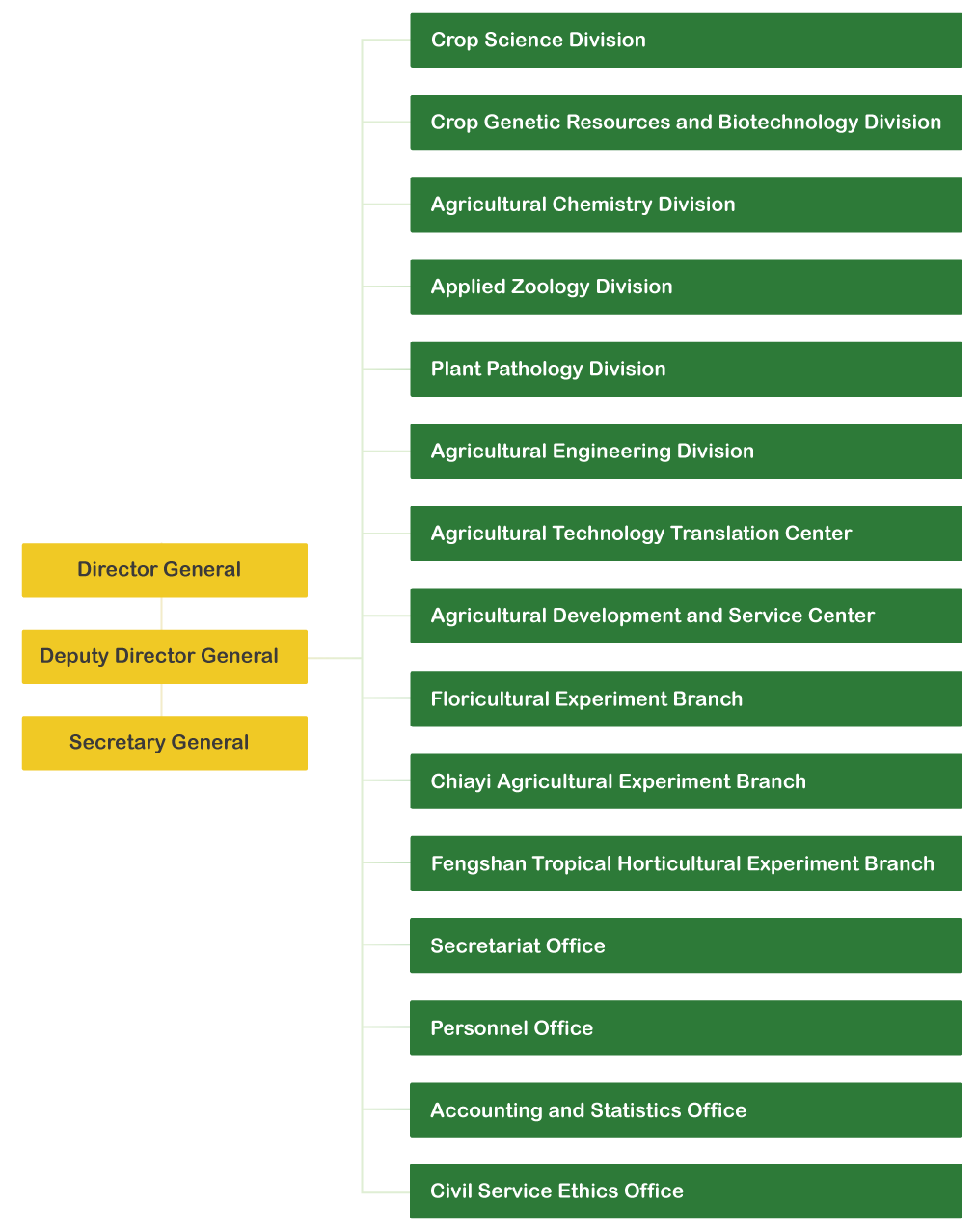TARI has ten R&D divisions, i.e., Crop Science, Crop Genetic Resources and Biotechnology Division, Agricultural Chemistry, Plant Pathology, Applied Zoology, Agricultural Engineering; two affiliated units, i.e., Agricultural Technology Translation Center and Agricultural Development and Service Center; four administrative offices, i.e., Secretariat, Personnel, Accounting and Statistics Office, and Civil Service Ethics; there branches, i.e., Floricultural Experiment Branch, Chiayi Agricultural Experiment Branch and Fengshan Tropical Horticultural Experiment Branch.
As of July 31, 2023, TARI has 231 research scientists, among them 79 with Ph.D. and 128 with M.Sc. degrees.
TARI conserves, studies, uses, and shares the collections of genetic resources of diverse agronomic and horticultural crops.
Improved varieties:At the heart of TARI's work and accomplishments, TARI develops crop varieties for the benefit of farmers and consumers. We conduct genetic and physiological research to improve crops for better quality and higher yield, resistance to diseases and insect pests, and tolerance of environmental stresses. In this endeavor, we employ both conventional breeding and new tools such as tissue culture, marker-assisted selection, genomics and genetic modification.
Value adding:TARI develops ways to add economic value to crops products by preserving freshness, extending shelf life, processing, and improving value-chain linkages.
Crop health:Other than genetic resistance to diseases and insect pests, we focus on measures such as non-chemical control, holistic crop-health care, and new quarantine techniques.
Farm management:We develop technologies and systems on soil and nutrient management, and integrated crop and resource management that adapt to increasing risk of floods and droughts induced by climate change, and to reduce greenhouse gas emissions.
Socio-economic study:We conduct research to identify key research issues, and to assess TARI's impacts.
Technology transfer:We transfer acquired innovations to the agri-food industry, and strengthen capacity building in the extension system to increase technology adoption, expand industrial capabilities and enhance competitiveness.

First Floor:Director General
Second Floor:Deputy Director-General
Third Floor:Secretary-General
Fourth Floor: Crop Science Division、 Crop Genetic Resources and Biotechnology Division、 Agricultural Chemistry Division、 Applied Zoology Division、 Plant Pathology Division、 Agricultural Engineering Division、 Agricultural Technology Translation Center、 Agricultural Development and Service Center、 Floricultural Experiment Branch、 Chiayi Agricultural Experiment Branch、 Fengshan Tropical Horticultural Experiment Branch、 Secretariat Office、 Personnel Office、 Accounting and Statistics Office、 Civil Service Ethics Office、

